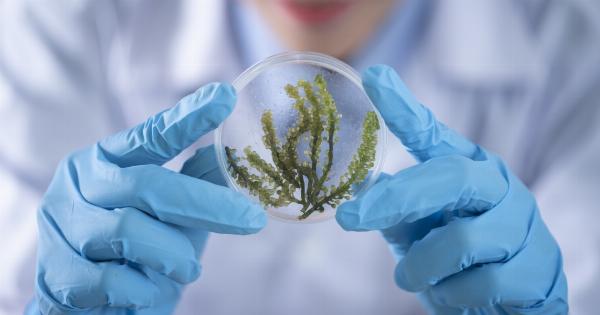Menopause is a natural biological process that occurs in every woman’s life. It signifies the end of reproductive years and usually happens between the ages of 45 and 55.
However, some women experience menopause before the age of 40, which is known as early menopause.
Early menopause can be caused by a variety of factors, including genetics, lifestyle, and medical conditions. Here are eight surprising reasons for early menopause:.
1. Smoking
Smoking is a well-known risk factor for heart disease, cancer, and other health conditions. However, many women are not aware that smoking can also lead to early menopause.
According to a study published in the journal Menopause, women who smoke are more likely to experience early menopause than non-smokers. This is because smoking can decrease the number of eggs in the ovaries and affect hormone levels.
2. Autoimmune Diseases
Autoimmune diseases such as lupus, multiple sclerosis, and rheumatoid arthritis can increase the risk of early menopause. This is because these conditions can damage the ovaries, which affects hormone levels and leads to early menopause.
Women with autoimmune diseases should be aware of the symptoms of early menopause and speak to their doctor if they experience them.
3. Cancer Treatments
Treatments for cancer, such as chemotherapy and radiation therapy, can damage the ovaries and lead to early menopause. This is because these treatments can affect the number of eggs in the ovaries and cause hormone imbalances.
Women who have undergone cancer treatments should be aware of the risk of early menopause and speak to their doctor if they experience symptoms.
4. Genetics
Genetics can play a role in early menopause. If women in your family have experienced early menopause, you may be more likely to experience it as well. This is because early menopause can be inherited through genes.
Women who have a family history of early menopause should be aware of the risk and speak to their doctor if they experience symptoms.
5. Stress
Stress can affect many areas of health, including reproductive health. Chronic stress can lead to a decrease in hormone levels and affect ovulation, which can lead to early menopause.
Women who experience high levels of stress should find ways to manage it, such as through exercise, meditation, or therapy.
6. Weight
Weight can affect hormone levels and lead to early menopause. Women who are underweight or have a body mass index (BMI) of less than 18.5 may experience early menopause because their bodies do not have enough fat to produce hormones.
On the other hand, women who are overweight or have a BMI of over 30 may also experience early menopause because their bodies produce too much estrogen, which can affect hormone levels.
7. Poor Diet
A poor diet can affect overall health and lead to early menopause. Women who do not have enough nutrients in their diet may experience early menopause because their bodies do not have the necessary resources to produce hormones.
A diet that is high in processed foods, sugar, and unhealthy fats can also lead to early menopause because it can affect hormone levels.
8. Environmental Toxins
Environmental toxins such as pesticides, plasticizers, and heavy metals can affect hormone levels and lead to early menopause. These toxins can mimic estrogen in the body and disrupt the natural balance of hormones.
Women who are exposed to environmental toxins should take steps to reduce their exposure, such as eating organic foods, using natural cleaning products, and avoiding plastic containers.
Conclusion
Early menopause can be caused by a variety of factors, including smoking, autoimmune diseases, cancer treatments, genetics, stress, weight, poor diet, and environmental toxins.
Women who experience symptoms of early menopause, such as hot flashes, vaginal dryness, and mood changes, should speak to their doctor. Hormone replacement therapy (HRT) may be an option to manage symptoms and reduce the risk of health conditions associated with menopause.





























